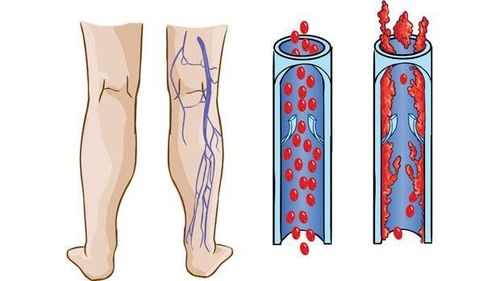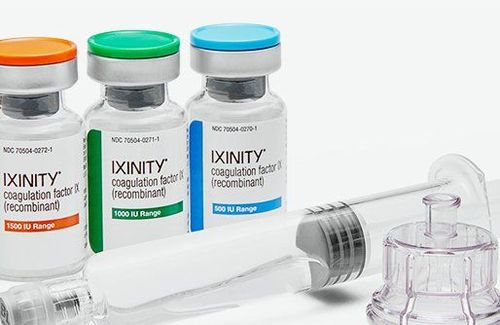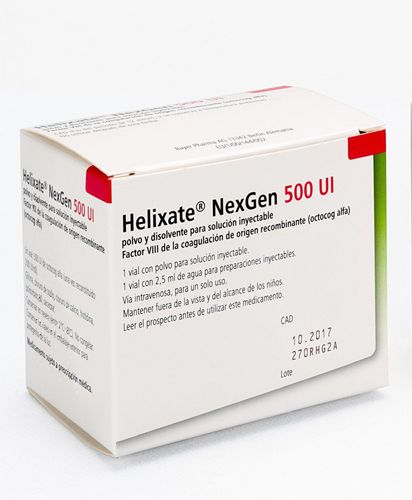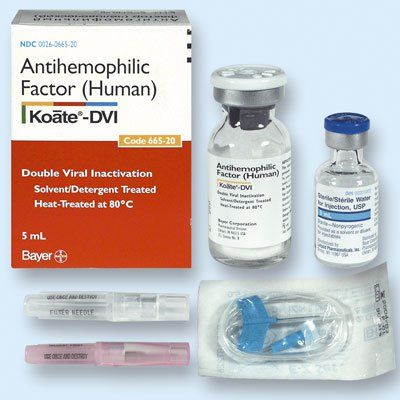This is an automatically translated article.
Vitamin K anticoagulants are used to treat and prevent the formation of blood clots, to prevent blood clotting in the blood vessels. Here is some information about using vitamin K antagonist anticoagulants.
1. Overview of vitamin K anticoagulants
1.1 Uses Anticoagulants Antivitamin K (antivitamin K - ie anti-vitamin K, abbreviated to AVK) is used to treat and prevent the formation and growth in terms of size of blood clots, against blood clots. blood clotting in the blood vessels. The drug does not work to dissolve blood clots, blood clots in blood vessels.
There are 2 types of anticoagulants that are commonly used in Vietnam, Sintrom (Acenocoumarol) and Coumadine (Warfarin). The mechanism of action of the drug is to inhibit the synthesis of 4 factors II, VII, IX and X, which are dependent on vitamin K in the liver.
The drug is prepared in the form of tablets, taken orally, absorbed in the gastrointestinal tract and excreted in the urine. Some types can cross the placenta and are excreted in breast milk.

Thuốc được bào chế dưới dạng viên nén
1.2 Indications Vitamin K antagonist anticoagulants are indicated for the following cases:
Patients with cardiovascular diseases related to heart valves such as valvular atrial fibrillation, severe left atrial dilatation, endocarditis conjunctivitis on the heart valve, had surgery to replace the mechanical heart valve, 3 months after surgery after replacing the biological heart valve. In these cases, anticoagulants are needed to keep the heart valves working to prevent blood clots from forming and causing blockages that lead to stroke or need for surgery. Patients with myocardial infarction are at high risk of severely reduced left ventricular function or ventricular wall dysrhythmias. The patient had hip surgery. Patient has arteriosclerosis. The patient has a deep vein thrombosis in the lower extremities. Patients with pulmonary embolism or primary pulmonary hypertension.

Bệnh nhân bị huyết khối tĩnh mạch sâu ở chi dưới
2. How to use vitamin K anticoagulant?
2.1 Principle of dose selection Depending on each patient's case, the dose will be different.
The starting dose is usually estimated based on the pathology and background of each patient. However, this dose needs to be adjusted according to the INR results to provide a balanced dose for the patient.
In elderly patients, with impaired liver function, at high risk of bleeding, the starting dose of vitamin K antagonist anticoagulants will be lower than usual.
In pediatric patients, the dose is calculated as mg/kg/day (only for children 1 month of age and older and in close coordination with the pediatric specialist. blood clotting time by performing an INR test, the doctor will prescribe the appropriate dose for each patient.For patients who have had a mechanical heart valve replacement, the goal of treatment is an INR between 2.5 - 3.5, the remaining cases INR reach 2 - 3. When taking anticoagulants, the patient should take the drug according to the dose prescribed by the doctor, avoiding arbitrarily changing the dose too high (may cause bleeding). ) or too low (causes blood clotting), can break the drug to take the correct dose.Patients need to perform an INR test at the request of the doctor, about every 2-4 weeks). Do not arbitrarily buy and take medicine or give it to others to use without a doctor's prescription. Patients need to take vitamin K anticoagulants continuously before re-examination. To avoid missed doses, patients should take them at a certain time of day.

Người bệnh cần uống thuốc theo đúng chỉ dẫn của bác sĩ
2.3 Side Effects Here are some of the side effects caused by vitamin K anticoagulants. Depending on the case, the drug can cause side effects to varying degrees, which can be permanent or temporary.
Bruises on hands and feet, I don't know the reason. Nosebleeds, bleeding at the root of a tooth, or prolonged bleeding when injured. Headache, dizziness, sudden shortness of breath, weakness or unconsciousness. Numbness or tingling sensation in the face or hands or feet. Muscles are sore and swollen. Long menstrual period. Unusual colored urine (pink or brown), bloody or black stools. If you take vitamin K antagonists and experience the following signs, stop taking them and go to the hospital immediately:
Severe allergic reactions such as swelling of the face, swelling of the throat, rash, low blood pressure, difficulty breathing. Vomiting blood or black discharge, coughing up blood, bloody urine or stools, bleeding in the eyes.

Người bệnh có thể cảm thấy bồn nôn và nôn
2.4 The subjects that need to be considered when using the drug Patients with liver failure, kidney failure need to inform and discuss with the doctor to be guided on the appropriate dose of the drug, and be closely monitored when taking the drug. Women should avoid becoming pregnant while taking vitamin K antagonists because the drug can cause birth defects in the fetus. Breastfeeding: Vitamin K anticoagulants can be excreted in breast milk, so the mother should consult a doctor.
3. Some notes when using anticoagulant vitamin K
If you forget to take your vitamin K anticoagulant, you can take that dose again if it hasn't been more than 8 hours. If it has been more than 8 hours, the patient should skip and take the next dose, but do not take a double dose (ie the missed dose). At the follow-up visit, it is necessary to inform the doctor about forgetting to take the medicine. If you forget 2 times in a row, you should consult your doctor for instructions on taking the next medication. During the use of the drug, it is necessary to avoid foods containing high levels of vitamin K, which are dark green vegetables such as kale, spinach, ...; animal liver, seaweed, green tea, parsley, red or white radish leaves, broccoli, bell peppers, asparagus, green onions, carrots, tomatoes. When taking anticoagulants, it is necessary to avoid activities that cause injury, such as playing contact sports, and work that uses dangerous machinery such as drills, saws, knives, nails. ,... It is necessary to adhere to the treatment schedule of the doctor, not to drink alcohol while taking the medicine. If side effects occur, notify your doctor immediately. Do not stop taking the medicine on your own without consulting your doctor. If you have to perform tests or have surgery or procedures, the patient needs to inform about the use of anticoagulants with vitamin K antagonists. In case of an accident, the patient needs to bring a document or prescription to notify the hospital, medical facility, emergency doctor about taking anticoagulants.

Vitamin K anticoagulants should be used with caution because they can interact with many other diseases and drugs.
Please dial HOTLINE for more information or register for an appointment HERE. Download MyVinmec app to make appointments faster and to manage your bookings easily.
Reference source: vnha.org












